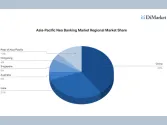
Tokyo’s Q1 office absorption more than double that of 2022’s full year figure
Net absorption totalled 116,000sqm in Q1.
As major new supply stimulated demand, net absorption in Tokyo’s Grade A office market totalled 116,000 sqm in 1Q23.
JLL says this is equivalent to 120% of 2022’s full-year figure in just one quarter. This high figure was driven by the information and communications, professional services, and construction industries.
Here’s more from JLL:
Three Grade A office buildings entered the market in 1Q23, increasing the stock by 2% q-o-q. These include Sumitomo Fudosan Tokyo Mita Garden Tower, Sumitomo Fudosan First Tower and Dogenzaka-dori. The schedule of new supply for full-year 2023 is the second largest volume since JLL started tracking it, and 30% of it was completed in the quarter.
Tokyo’s vacancy rate in the Grade A office market averaged 4.2%, increasing 40 bps q-o-q and 110 bps y-o-y. This was the first increase in two quarters, in part reflecting the remaining vacancy in newly-supplied buildings. The vacancy rates in Otemachi/Marunouchi and Akasaka/Roppongi both saw decreases, albeit slightly.
Capital values decrease, reflecting a decrease in rents
Rents in Tokyo’s Grade A office market averaged JPY 34,302 per tsubo, per month, at end-1Q23, decreasing 1.0% q-o-q and 4.3% y-o-y. Rents edged downward for the 12th consecutive quarter. The rate of decline was mostly in line with the previous quarter. Both Otemachi/Marunouchi and Akasaka/Roppongi submarkets saw a slowdown in the decrease.
Capital values in 1Q23 increased 1.9% y-o-y, yet decreased 2.3% q-o-q, the first decrease in two quarters. This reflected negative rent growth as cap rates remained stable. Major transactions in the quarter included Angelo Gordon’s acquisition of Harumi Island Triton Square Office Tower X (co-ownership) for a confidential price.
Outlook: Capital values to decrease marginally in tandem with rents
According to Oxford Economics’ forecast as of March 2023, the GDP growth for 2023 was revised downwards to 0.6% and the CPI was revised upwards to 1.5%. Risks include the downswings in overseas economies, inflation and volatility in the financial markets.
Under these circumstances, the leasing volume is expected to increase on the back of historically-high new supply scheduled for 2023. However, excess supply is expected to increase the vacancy rate and place downward pressure on rents. Capital values are expected to decrease on the back of such rent decreases, as cap rates have limited room for further compression.
Note: Tokyo Office refers to Tokyo's 5 Kus Grade A office market.



















 Advertise
Advertise






